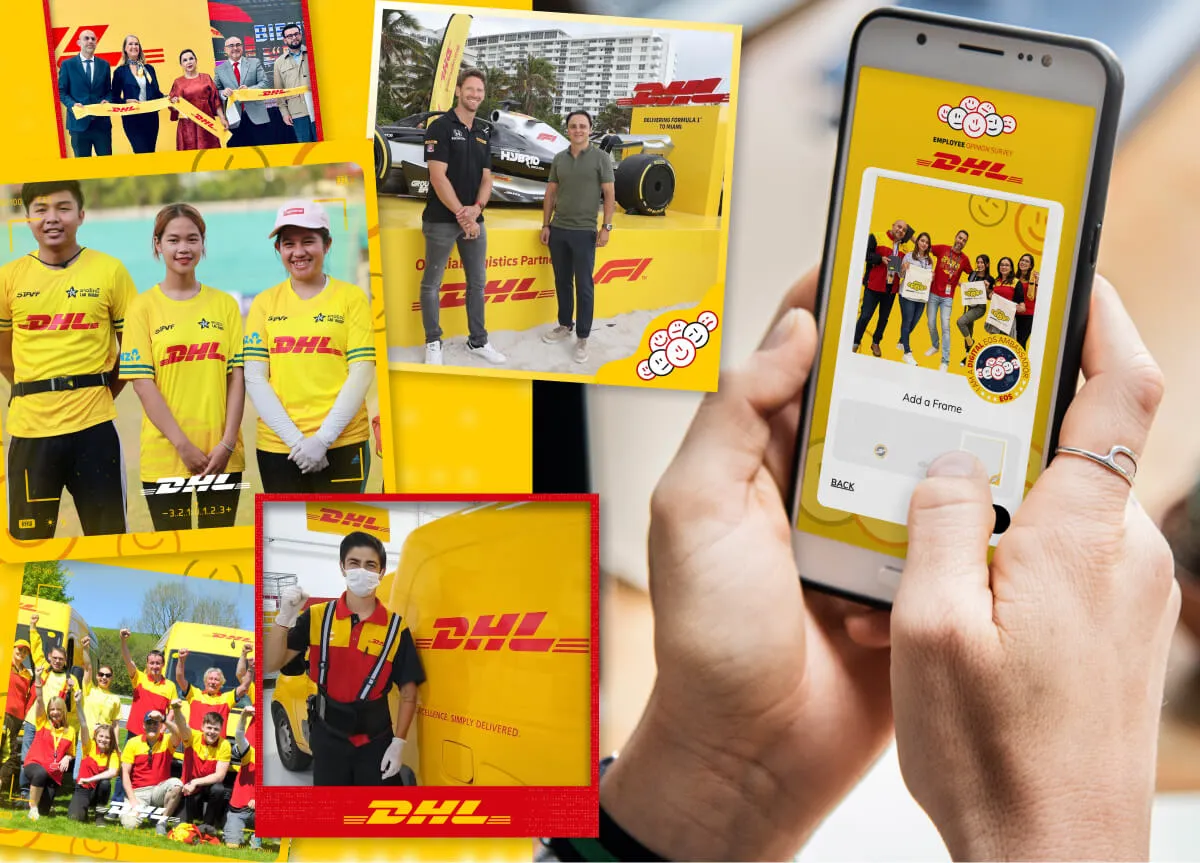Working remotely and in hybrid teams has become the new normal for many businesses in the post-COVID-19 world. While this may seem like a dream come true for some, it can be quite challenging for others. One of the biggest challenges for remote and hybrid teams is team engagement. When employees are working from different locations, it can be difficult to build rapport, foster collaboration and maintain team morale. In this article, we'll explore and discuss 9 innovative team engagement ideas that can help improve communication, collaboration, and overall productivity in remote and hybrid teams.
Understanding Remote & Hybrid Teams

Defining Remote Teams
A remote team is a group of people working together from different locations or working remotely from their homes. This can be for various reasons ranging from personal choice, company policy, or due to unforeseen circumstances.
Remote teams are becoming increasingly popular as companies recognize the benefits of having a distributed workforce. For one, it allows businesses to tap into a larger talent pool since they are not limited by geographical location. Additionally, remote teams can save on office space, reduce overhead costs, and increase productivity since employees are not commuting to work.
However, remote teams also face unique challenges that can impact their productivity and engagement. For example, remote workers may feel disconnected from their colleagues and the company culture, which can lead to feelings of isolation and disengagement. Recognizing accomplishments with an employee trophy—whether shipped to remote team members or awarded in virtual ceremonies—can help bridge this gap and reinforce a sense of belonging.
Defining Hybrid Teams
A hybrid team, on the other hand, is a combination of remote and on-site workers. With this combination, employees are given the flexibility to work from home or in office, depending on their preference or the nature of their responsibilities.
Hybrid teams can provide the best of both worlds for employees who value the flexibility of remote work but also crave the social interaction and collaboration that comes with working in an office. This setup can also allow for better work-life balance since employees can choose when and where they work.
However, hybrid teams also face unique challenges that can impact their productivity and engagement. For example, communication can be a challenge since some team members may be in the office while others are working remotely. Additionally, hybrid teams may struggle to maintain a cohesive team culture since some members are physically present while others are not.
Challenges Faced by Remote & Hybrid Teams

Remote and hybrid teams face multiple challenges when it comes to engagement. These include communication gaps, feeling isolated, lack of personal connection with other colleagues, distractions at home, and the possibility of burnout due to an unclear work-life balance.
One of the biggest challenges for remote and hybrid teams is maintaining a sense of connection and belonging. Without regular face-to-face interaction, it can be easy for team members to feel disconnected from each other and the company culture. Additionally, remote workers may struggle with distractions at home, which can impact their productivity and engagement.
Another challenge for remote and hybrid teams is communication. Without regular face-to-face interaction, it can be easy for messages to get lost in translation or for misunderstandings to occur. This can lead to delays in project delivery and a breakdown in team cohesion.
Innovative Team Engagement Ideas
To overcome these challenges and create a more connected and productive workforce, there are several innovative team engagement ideas that remote and hybrid teams can implement:
- Virtual team building activities: Teams can participate in virtual team building activities such as online games, virtual happy hours, and team challenges to build a sense of camaraderie and connection.
- Regular check-ins: Managers can schedule regular check-ins with remote team members to ensure they feel supported and connected to the team.
- Clear communication guidelines: Teams can establish clear communication guidelines to ensure everyone is on the same page and messages are not lost in translation.
- Flexible work arrangements: Hybrid teams can offer flexible work arrangements that allow employees to work from home or in office, depending on their preference or the nature of their responsibilities.
- Training and development opportunities: Remote and hybrid teams can offer training and development opportunities to help employees continue to grow and develop their skills.
By implementing these team engagement ideas, remote and hybrid teams can overcome the challenges they face and create a more connected and productive workforce.

The Importance of Team Engagement
Team engagement is not just a buzzword; it is a crucial factor for any successful business. When employees are engaged, they are more productive, innovative, and motivated to achieve the company's goals. Engaged employees also have a positive impact on the company's bottom line, with lower turnover rates and increased profitability.
But what exactly is team engagement? It is the level of emotional commitment an employee has towards their work and the company. Engaged employees are passionate about what they do, and they feel valued and appreciated by their employer.
Benefits of Engaged Teams

- Increased job satisfaction and employee retention: Engaged employees are more likely to stay with their current employer, reducing recruitment and training costs. They are also more satisfied with their jobs, leading to higher levels of employee morale.
- Higher productivity, efficiency, and innovation: Engaged employees are more productive, efficient, and innovative. They are committed to achieving the company's goals and are willing to go the extra mile to ensure success.
- Better collaboration and communication within the team: Engaged employees work well together, sharing ideas and collaborating to achieve common goals. They communicate effectively, reducing misunderstandings and conflicts.
- Greater employee wellbeing, leading to fewer sick days: Engaged employees are more likely to take care of their physical and mental health, leading to fewer sick days and a healthier workforce.
Risks of Disengaged Teams
- High employee turnover and recruitment costs: Disengaged employees are more likely to leave their current employer, leading to high recruitment and training costs for the company.
- Lower productivity and efficiency levels: Disengaged employees are less productive and efficient, leading to lower levels of output and reduced profitability for the company.
- Breeding ground for toxic work culture affecting the overall morale of the team: Disengaged employees can create a toxic work culture, affecting the morale of the entire team. This can lead to conflicts, misunderstandings, and reduced collaboration.
- Poor communication and collaboration within the team resulting in high stress levels: Disengaged employees may not communicate effectively, leading to misunderstandings and high levels of stress within the team.
In conclusion, employee engagement is a critical factor in the success of any business. Engaged employees are more productive, innovative, and motivated, leading to increased profitability and lower turnover rates. Disengaged employees, on the other hand, can create a toxic work culture and reduce productivity levels. It is essential for employers to prioritize team engagement to ensure the success of their business.
Innovative Team Engagement Ideas
Engaging remote and hybrid teams can be challenging, but it's essential to keep team members connected and motivated. Here are some innovative team engagement ideas that can help:
Idea 1: Virtual Team Building Activities
Virtual team building activities are a great way to get team members to collaborate and interact with each other. In today's remote work environment, it's crucial to create a socially engaging environment, which is critical in remote and hybrid team settings. Scavenger hunts, trivia challenges, or online games that incorporate remote work-related themes offer the right mix of fun and professionalism. These activities can help team members bond and build relationships, which can help improve collaboration and productivity.
Idea 2: Regular Check-ins and One-on-One Meetings
Setting up regular check-ins and one-to-one meetings between team members and managers is an effective way to engage your remote team members. These meetings should be tailored to individual employee needs and concerns and should focus on each employee's work-life balance, career growth plans, and any challenges they're facing. Providing a safe space for team members to voice their concerns can help them feel heard and valued, which can help improve their engagement and motivation.
Idea 3: Collaborative Project Management Tools
Collaboration is key when working in remote and hybrid teams. Utilizing project management tools like Asana, Trello, or Monday.com allows everyone to see progress in real-time, assign tasks, and offer comments and feedback on each other's work in a collaborative platform. This also helps in creating transparency and accountability within the team. Having a centralized platform for project management can help team members stay organized and on track, which can help improve productivity and engagement. Incorporating live video calls into daily operations can help bridge the gap in communication, allowing team members to connect more personally and reducing potential misunderstandings that can occur with text-based communications.
Idea 4: Remote Team Recognition and Rewards
As a team manager, it's important to acknowledge and appreciate the hard work and achievements of your remote team members. Instituting recognition programs and remote team awards ceremonies allows team members to feel valued and appreciated, both for their input into the company's success, and social efforts. Promotions, holidays, compensation, or recognition certificates could be given to employees who have demonstrated an exceptional performance. This can help improve team morale and motivation.
Alternatively, consider the personal touch of ordering ready-to-eat meals online for your team. Nutritious and convenient, it's a beneficial way to express appreciation to team members who always deliver. Not only will this add an element of surprise, but it also gives them the allowance to rest after a hard day's work. This can also be a token of appreciation for their service and an additional tangible representation of the company’s appreciation.
Idea 5: Online Training and Skill Development
Training and skills development are essential in professional growth and development. Offering remote employees access to online courses, workshops, or webinars that help improve their skills and knowledge not only benefits the individual but also elevates the entire team's expertise. This also ensures that they stay up-to-date with new technologies and industry developments. Providing opportunities for professional development can help team members feel valued and invested in, which can help improve their engagement and motivation.
Idea 6: Encourage Social Interaction and Informal Communication
Allowing your remote team members to interact is important for team bonding. Encourage team members to communicate outside of work about personal interests, hobbies, and backgrounds. Using accessible chat platforms like Slack or Zoom can help initiate these informal discussions while allowing team members to build stronger relationships. This can help improve team cohesion and collaboration.
At Snapbar we've pioneered our own way to create team interactions based on the popular social media platform BeReal - adapted for the workplace. Our Snapshot Candid experience utilizes scheduled text messages to prompt team members to spend a couple minutes capturing and editing a fun photo or burst video of their current work or personal life that automatically populates a live gallery. It expires after a set amount of time, keeping the distraction short, but maintains a super fun gallery of content for team members to explore, like, and talk about. It's been a great way for our own team to share things outside of chat and email helping show a whole other side of colleague's remote work lives.

Idea 7: Organize Virtual Team Lunches or Coffee Breaks
Organizing virtual team lunches or coffee breaks is a great way of replicating an office environment and promoting remote team building. Team members can take time out to discuss personal interests and just chat about their private lives in a less formal way. Encouraging supporting restaurants that are also suffering due to the pandemic is another way to foster community morale. This can help improve team morale and engagement.
Idea 8: Implement Employee Wellness Programs
Employee wellness programs have gained significant traction in recent years. These programs aim to improve employees' physical and mental health through sponsored activities and offerings in and out of work. Providing resources in this area also encourages employees to prioritize and take care of themselves, thereby reducing the risk of burnout or fatigue. This can help improve team members' well-being and engagement.
Idea 9: Host Virtual Company Events and Celebrations
Hosting virtual company events helps build a sense of community within the organization. Celebrating milestones, such as work anniversaries, project completions, and birthdays, is important. Live virtual events like musical performances or entertainment programs can lift team spirits and strengthen team bonding. This can also be a suitable platform to introduce awards and recognition programs. This can help improve team morale and motivation.
Implementing these innovative team engagement ideas can help improve team cohesion, collaboration, and motivation, which can lead to increased productivity and success for the organization.
Conclusion
Working remotely and in hybrid teams does not have to be a challenge. Utilizing the above discussed innovative team engagement ideas can ensure that a remote workspace is as accommodating to a team as a traditional office setting. To overcome the challenges that come with a remote setup, the best solution is to create a sense of community, foster open communication, and encourage the team collaboration whenever possible.








.jpeg)
















